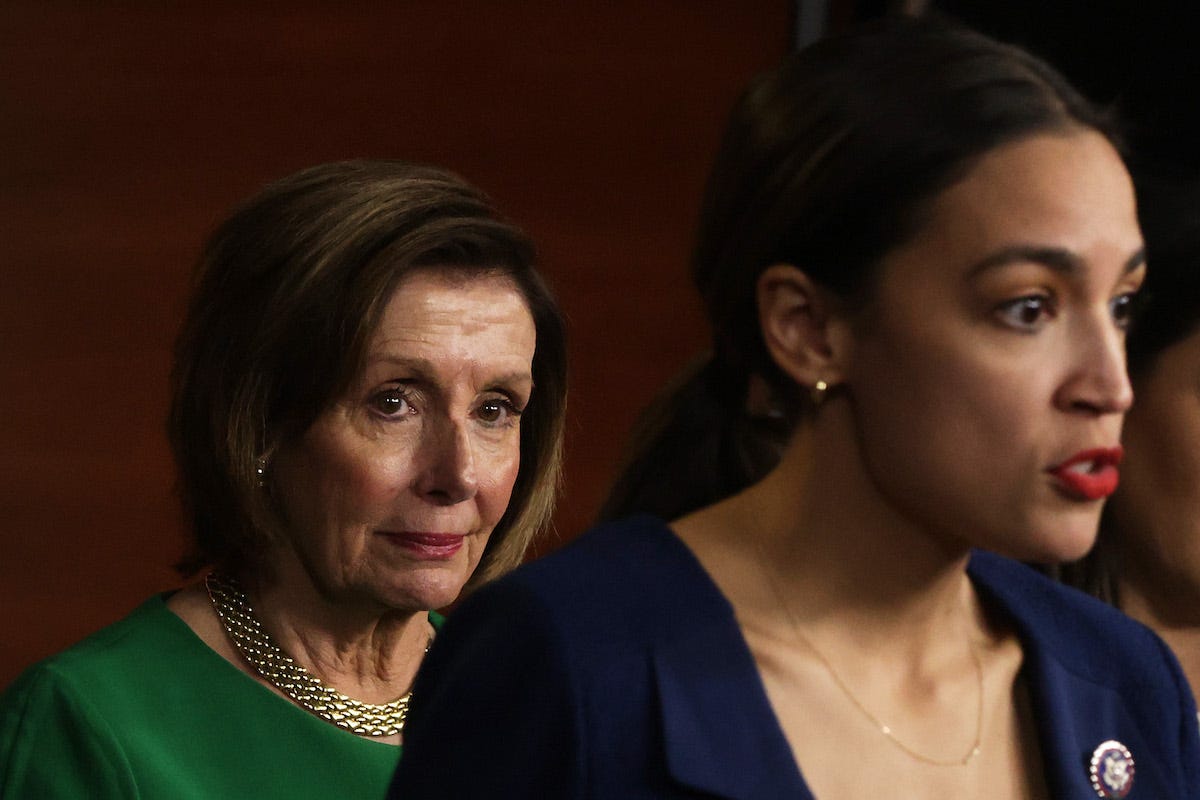Yes “Anticipatory Obedience” Would Be Harder If Democrats Weren’t Cowering
And some thoughts on what a better approach might look like.
I’d like to respond to two different but related pieces of feedback I received to Monday’s newsletter.
One was to suggest that most of the stakeholders we’ve seen capitulate to Donald Trump during this transition period are either ideological Republicans (like FBI Director Christopher Wray) or bloodless corporate entities (like ABC) who aren’t really capitulating at all, but rather willingly or enthusiastically advancing ulterior interests.
Isn’t Wray just doing what Trump wants because he wants Trump’s political project to succeed? Didn’t ABC just settle Trump’s winnable defamation lawsuit for access reasons, or because news executives support his tax-cutting agenda, or whatever else?
The other critique rang out a note of helplessness. What are Democrats to do? They can’t control Republican actors or business elites. Why should they intervene in matters they can’t influence?
Here is my combined response to both objections, which merge on the news that Democratic leaders have whipped votes to prevent Alexandria Ocasio-Cortez from becoming the top Democrat on the committee that oversees public corruption.
BENDING THE DISNEY
First, it’s a pat mistake, highly reductive, to assume that the humans making these decisions are pure partisans or cynics. I don’t know if Wray had a preference in the election, and I can’t claim to think Wray has exercised impeccable judgment over the last seven-plus years. Indeed, I thought Joe Biden should fire him. But he’s plainly not a Trump loyalist.
He’s obviously no resistance liberal, either, but the world isn’t divided up so neatly. On those occasions when he made calculated decisions vis-a-vis Trump that effectively benefited Trump, they were not wholly corrupt. They tended to reflect conflict aversion and bureaucratic turmoil and fear of Republican mau-mauing, not special favors. His early retirement is much the same, which is unfortunate, but not particularly revelatory. I’m quite certain he wanted to serve out his term and would rather not have been forced out.
I’m less certain that he would’ve responded differently if he’d received real backup from Democrats when Trump announced his plan to turn the bureau over to Kash Patel, a true degenerate. Perhaps Wray simply didn’t want to put up a fight under any circumstances. For now, at least, we can only wonder.
ABC News (or, I should say, the news division of Disney’s network broadcasting subsidiary) similarly did not have an institutional interest in settling this defamation case, nor does George Stephanopoulos benefit professionally from acquiescing to it. This is a trophy for Trump, one he’ll lord over ABC News and the rest of the legacy media for the rest of his time in public life. How frequently do you think you’ll hear him claim ABC admitted to being “fake news” then paid him “millions and millions of dollars” to avoid an even larger defamation judgment? How often do you think he’ll paint with a broader brush, accusing all news outlets of the same supposed misdeeds? How frequently do you think he’ll claim the ABC decision essentially nullifies the jury decision holding him liable for sexually abusing E. Jean Carroll? Now double or triple your guesses. Do you think he’d have sued the Des Moines Register and its erstwhile pollster Ann Selzer this week, for publishing the results of a poll that turned out to be an outlier, if ABC had stood its ground as it should have?
No, this is a real stain on ABC, and highers-up in the news division surely know it. Disney (and other parent owners of mainstream media companies) are a different story. Going forward, I’d expect similar behavior from news organizations that slot into some larger corporate ownership structure. The ABC settlement probably would not have happened if ABC weren’t a Disney subsidiary. I imagine lawyers and executives at Disney made a judgment call, based on the parent company’s interests. At this point you’d expect much the same from the Washington Post—whose owner, Jeff Bezos, has many unrelated interests before government. Sadly, most national journalism outlets operate under this kind of arrangement today. (One key exception, for all its problems, is the New York Times, whose owners’ interests are exclusive to the paper.)
But that doesn’t mean these corporations are uniformly afraid of Trump or happy to do his bidding for tax cuts. He was president once before and corporate leaders engaged in a mix of sycophancy and affective, anti-Trump, progressive signaling.
In a less lopsided political climate, they’d still be cross-pressured. What they’re signaling now is that they’re only feeling the heat from one set of forces.
THE LONG CONNOLLY
Things don’t have to be so lopsided.


